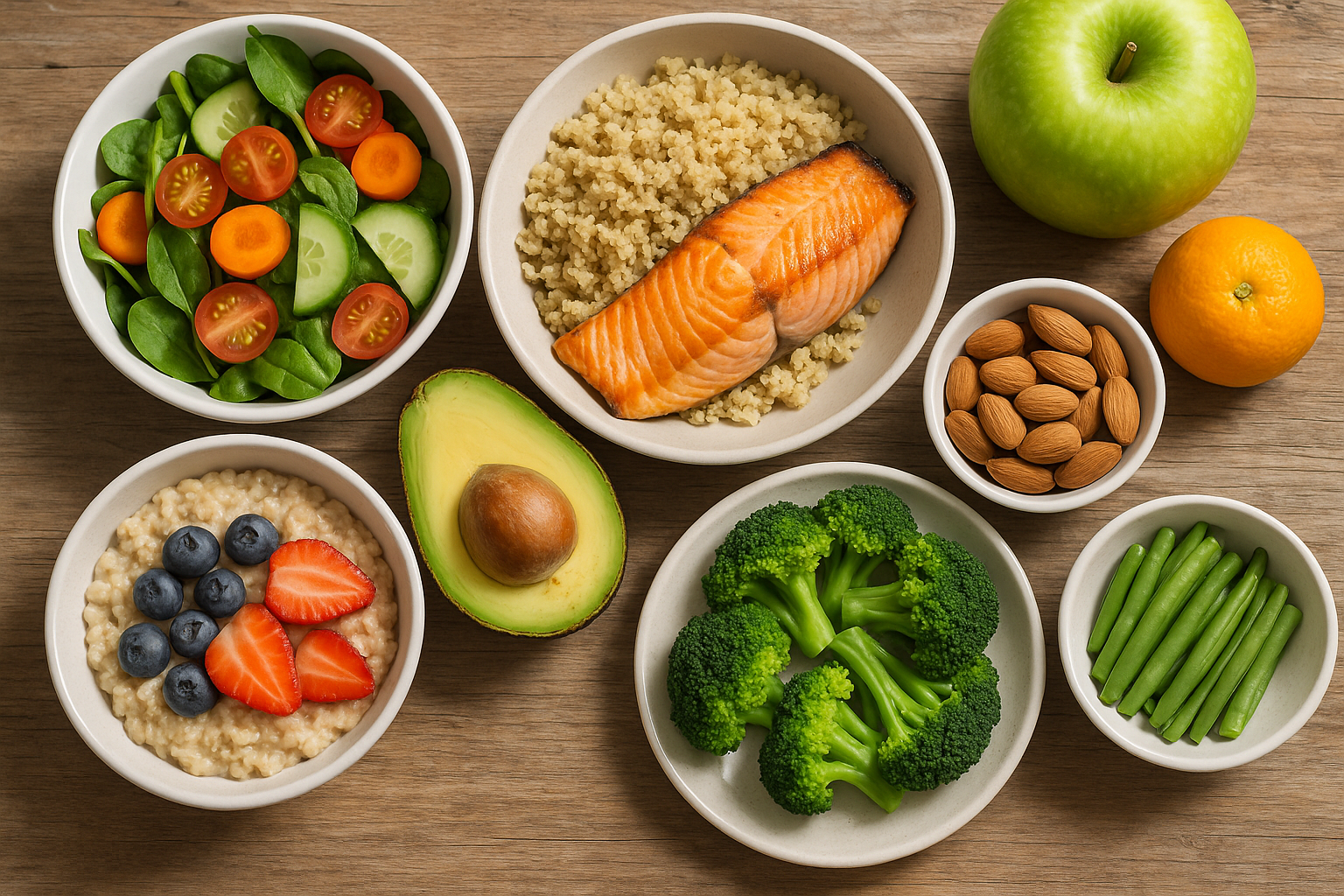Ever feel low on energy, stressed about weight, or worried about getting sick? What you put on your plate each day has more power than you think. Eating a balanced diet—more fruits, vegetables, whole grains, and cutting back on processed foods—can really move the needle on your health.
What Does Balanced Diet Really Mean
- Fill half your plate with veggies and fruits, especially those colourful kinds like berries, leafy greens, and citrus.
- Choose whole grains (like brown rice, oats, whole-wheat bread) instead of refined grains.
- Eat lean proteins like skinless chicken breast, turkey breast, lean beef cuts (like round steak, top sirloin), lean ground beef/turkey or plant-based ones (beans, lentils, nuts).
- Cut down on processed foods, excess sugar, saturated fat, and unhealthy salt.
Why Your Body Thanks You When You Do This
- Lower risk of chronic disease: Diets rich in plants and whole grains are strongly linked to less risk of heart disease, stroke, diabetes, and even some cancers. American Medical Association
- Better heart & blood pressure: Fruits & vegetables help lower blood pressure, and whole grains improve blood cholesterol. The Nutrition Source
- Improved digestion & gut health: Fibre from whole grains, legumes, fruits & veggies keeps things moving well. World Health Organization
- Sustained energy, better mood: Stable blood sugar, fewer spikes from sugary processed foods → more steady energy, less fatigue.
- Healthy weight: Balanced diets help you feel full longer and avoid overeating. Helps in managing or reducing weight without drastic diets.
Easy Ways to Make It Work (Not Overwhelming)
- Start small: add one extra serving of fruit or veg each day.
- Swap: choose brown rice or whole wheat bread over the white/rice version.
- Cook more at home instead of eating processed meals.
- Keep healthy snacks around: nuts, fresh fruit, carrot sticks, etc.
- Read labels: less sugar, less salt, fewer additives.
Frequently Asked Questions for Healthy Eating
- How many portions of fruits & vegetables should I aim for?
Experts often recommend at least five portions (about 400g) of fruits & vegetables per day to lower the risk of heart disease, stroke, and certain cancers. World Health Org - Are whole grains really that much better? Do they taste different?
Yes — whole grains keep more nutrients and fibre because they retain the bran and germ, unlike refined grains. They may feel chewier (“heavier”) at first, but over time your body gets used to them. Bonus: they’re often more filling. nhs.uk - What are “processed foods” and why should I limit them?
Processed foods include those with added sugar, salt, unhealthy fats, and lots of additives or preservatives. Things like chips, sugary drinks, processed meats. These often have fewer nutrients and more things that harm health when eaten in excess. World Health Organization - If I make these changes, how soon will I feel better?
You might notice improvements (more energy, better digestion, mood) within a few days to weeks. Bigger changes, like weight loss or lower disease risk, happen over months to years—but every little change counts.
You deserve to feel strong, energetic, and confident in your health. Start small, stay consistent, and celebrate each win. Your future self will thank you for the good food you choose today.
Good luck, and happy eating!
You may also be interested in Stay well hydrated: Why drinking enough water matters for your health


[…] You may also be interested in How eating a healthy, balanced diet can change your health […]
[…] Eat a balanced diet: Focus on vegetables, fruits, whole grains, lean protein, and low-fat dairy. Limit salt to less than 5 grams per day to reduce blood pressure. Read more on How eating a healthy balanced diet can change your health […]